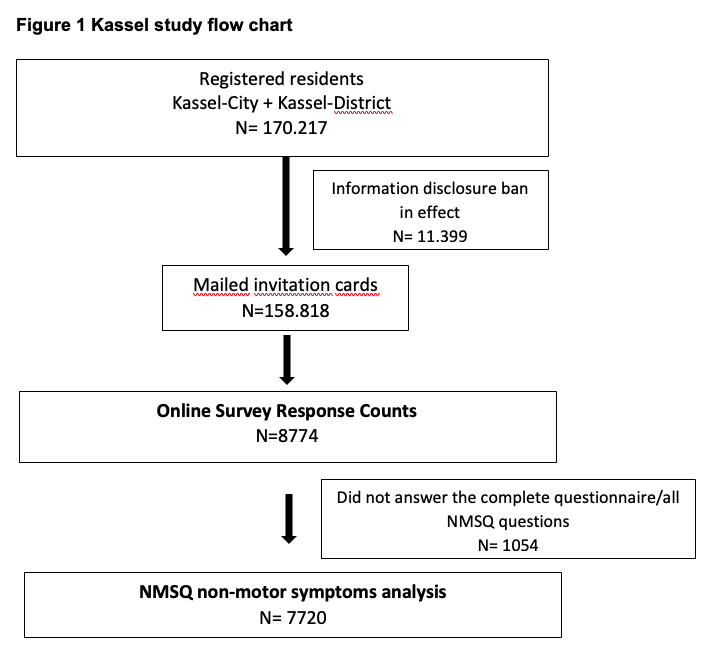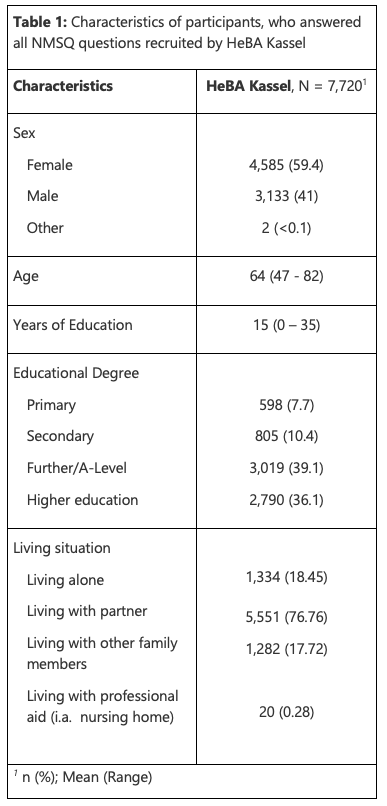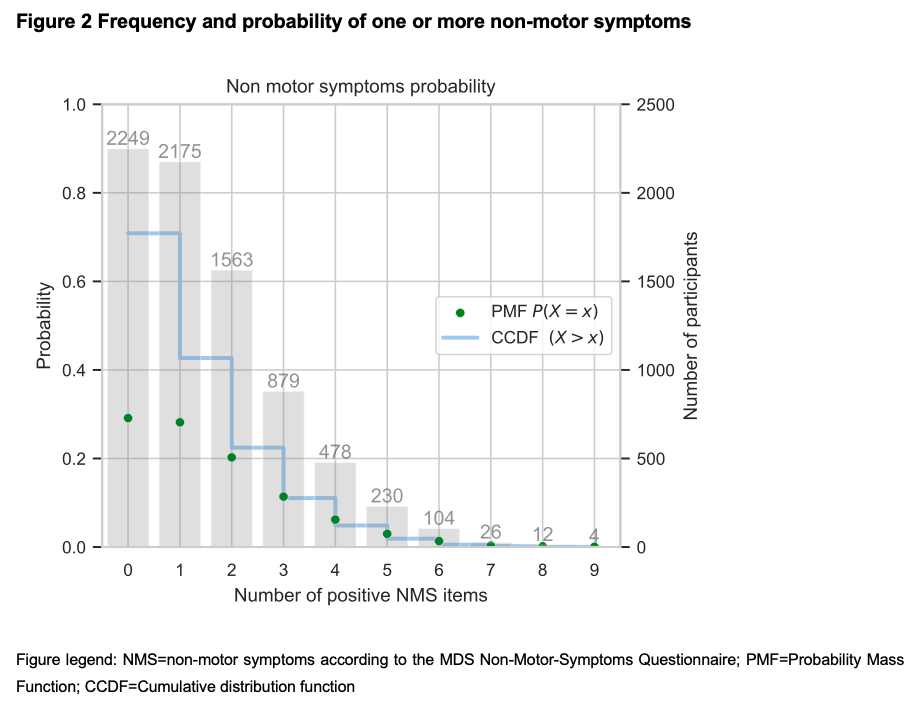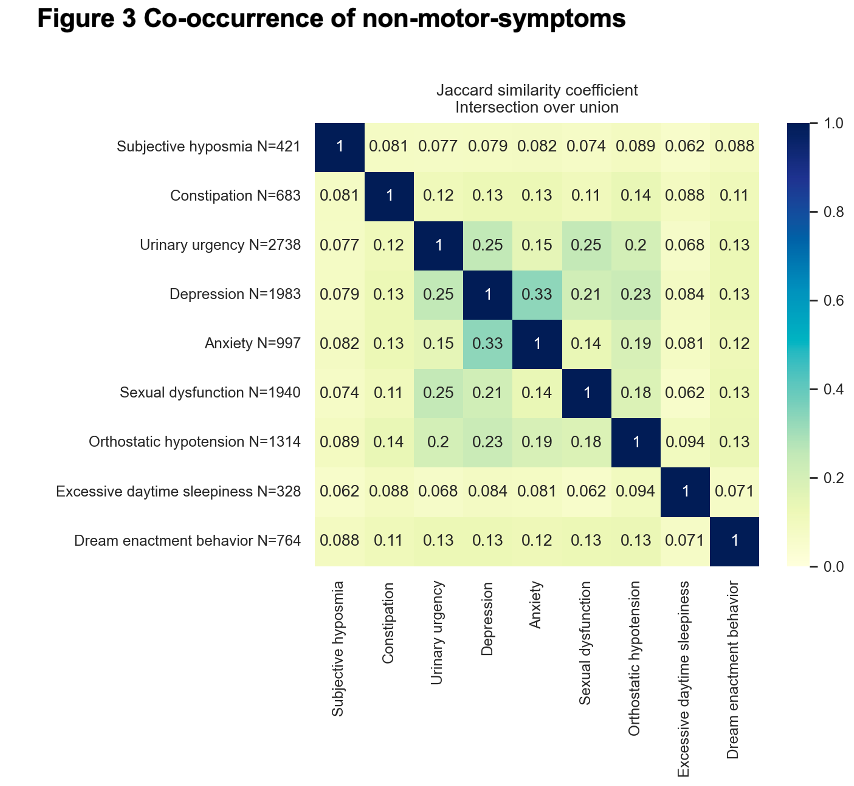Category: Parkinson's Disease: Non-Motor Symptoms
Objective: To identify subjects with NMS for recruitment of a cohort at risk for prodromal PD
Background: Neurodegeneration in PD starts years before the development of motor features upon which the clinical diagnosis is made. Subjects at risk can be identified by risk factors and prodromal markers. Recruitment strategies for prodromal cohorts are urgently needed in the quest of improving early diagnosis and developing preventive therapies
Method: As part of the Healthy Brain Ageing (HeBA) Initiative[1], the local population in Kassel (age 50 to 80) was invited to take part in an Online Survey. In a population-based recruitment approach, all registered residents of the Kassel area were contacted directly by mail and received an individualized participation code. Addresses were received from the local resident registry. One part of the Online Survey is the NMS Questionnaire (NMSQ)[2]. 3000 subjects at high, medium and low risk receive a remote smell test via mail thereby further stratifying their risk. A subset of these subjects is currently invited for in-person visits. Here we present the 9 items of the NMSQ that are also part of the MDS research criteria for prodromal PD
Results: The Kassel study flow can be found in [figure1] and demographic characteristics in [table1]. The frequency and probability of certain NMS according to the NMSQ are pictured in [figure2] and [figure3]. Urinary urgency, depression, sexual dysfunction and orthostatic hypotension occur most frequently. Depression-Anxiety, Sexual dysfunction-Urinary urgency and Depression-Urinary urgency are most likely to co-occur. 71% of subjects have at least one (11% at least 4) NMS positive
Conclusion: A direct recruitment approach for an online survey seems to be a feasible strategy to identify subjects with NMS that might be at risk for prodromal PD in the general population. Some features co-occur more frequently. Further analysis and follow-up is needed to improve the recruitment strategy and to optimize the online survey for prediction of (a) pathological smell test results, (b) pathological dopamine transporter Scan imaging, (c) prodromal PD subjects and (d) conversion to manifest PD. This future analysis will include an integration of the ongoing remote smell tests and a comparison to other centers of HeBA applying different recruitment strategies. Updated data including smell test results will be presented at the MDS conference
References: [1] MDS Congress 2023 Abstract: 0748_1125_001612
[2] KR Chaudhuri et al. 2006: International Multicenter Pilot Study of the First Comprehensive Self-Completed Nonmotor Symptoms Questionnaire for Parkinson’s Disease: The NMSQuest Study. Movement Disorders, Vol. 21, No. 7, 2006, pp. 916–923; DOI: 10.1002/mds.20844
To cite this abstract in AMA style:
S. Schade, C. Vega Moreno, C. Horlings, A. Garrido, T. Marques, P. Mahlknecht, E. Bryan, C. Gomes, C. Pauly, S. Ghosh, K. Rege, R. Rawal, T. Wicke, E. Lang, S. Schnell, V. Satagopam, K. Seppi, M. Marti, E. Tolosa, W. Poewe, R. Krüger, C. Trenkwalder, B. Mollenhauer. Identifying prodromal NMS in a population-based recruitment strategy: Kassel data of Healthy Brain Ageing [abstract]. Mov Disord. 2023; 38 (suppl 1). https://www.mdsabstracts.org/abstract/identifying-prodromal-nms-in-a-population-based-recruitment-strategy-kassel-data-of-healthy-brain-ageing/. Accessed February 22, 2026.« Back to 2023 International Congress
MDS Abstracts - https://www.mdsabstracts.org/abstract/identifying-prodromal-nms-in-a-population-based-recruitment-strategy-kassel-data-of-healthy-brain-ageing/




